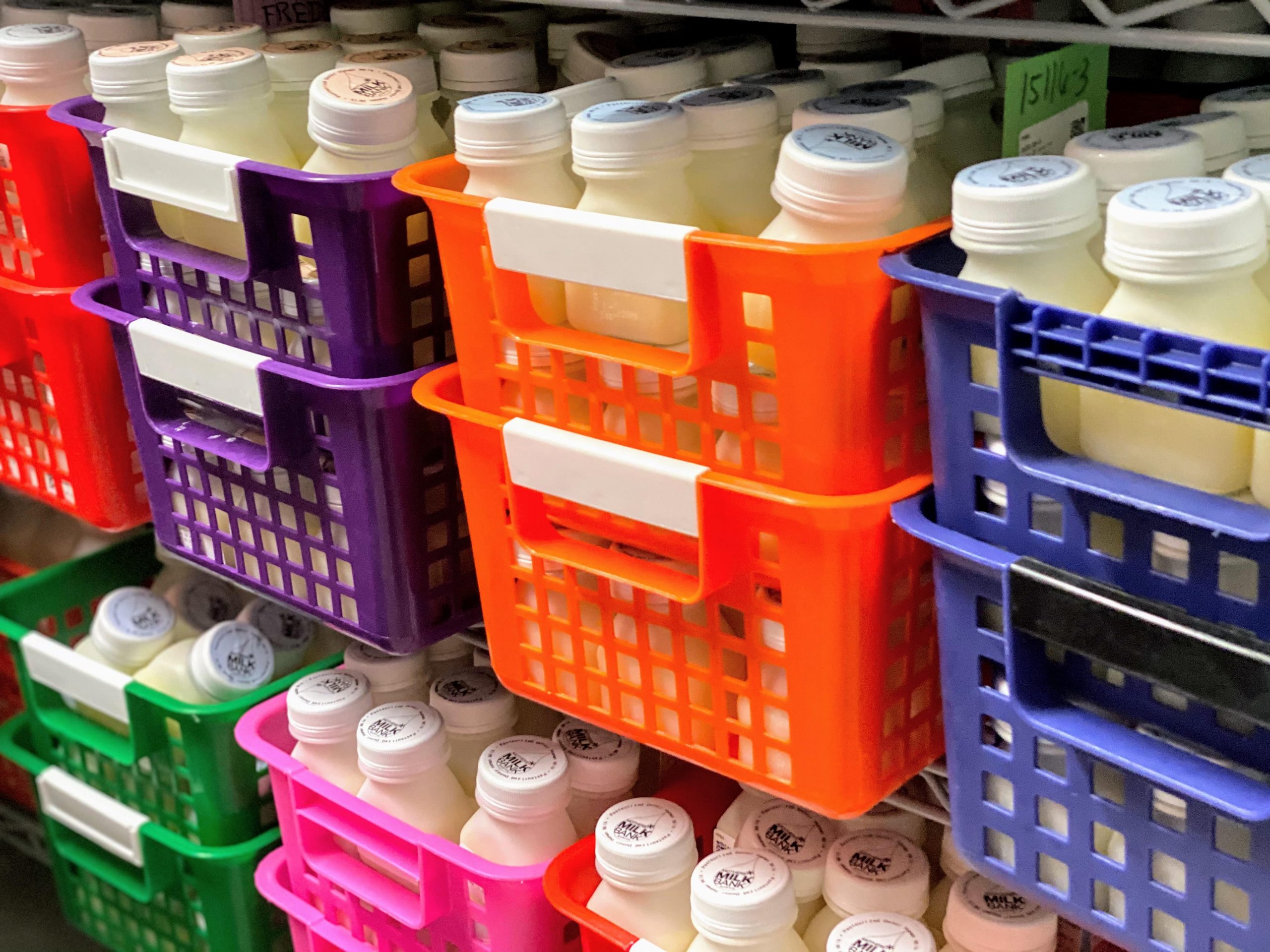Human milk matures the intestinal tissue, fights infections, and promotes brain development while providing ideal nutrition.
Human milk is especially important for premature or sick babies, who are 1,000% more likely to develop devastating intestinal infections if they’re fed formula instead of human milk. Cow’s milk-based formulas arrived on the markets in the 1950’s and specialized formulas for preterm babies became available in the 1950’s. Despite their popularity, they don’t come anywhere close to providing the benefits of human milk. In the United States each year, 60,000 babies are born weighing 3.5 pounds or less. And although social support for breastfeeding and chestfeeding is growing, fewer than half of those parents who deliver a baby prematurely are able to provide their babies with their own breast milk. Through lifesaving donor milk, these medically-fragile babies receive the benefits of human milk that help them grow and thrive.
When it comes to tiny and fragile babies, neonatologists are most concerned about providing nutrients and immune and growth-promoting components, while preventing necrotizing enterocolitis (NEC), a condition that attacks the intestinal tract, damaging or destroying it. NEC frequently requires emergency surgery to remove part of the intestines; emergency surgery on a preterm infant is difficult and dangerous.
Human milk makes a huge difference in how well tiny and fragile babies do after birth because it vastly reduces the incidence of NEC, and it helps to repair the intestines should they become infected. Human milk matures the intestinal tissue, fights infections, and promotes brain development while providing ideal nutrition. Consider:
- 1 in 9 babies is born preterm
- 10-17% of preterm babies fed formula acquire NEC
- 1.5% of preterm babies fed human milk acquire NEC
- Human milk feedings reduce the rate of NEC by 75%
Last year (in 2020) thanks to 1,898 milk donors, Mothers’ Milk Bank Austin distributed over 800,000 ounces of pasteurized human milk to medically fragile and premature babies around the country. A 2 pound baby eats no more than 5.5 ounces in a day, so a donation of 100 ounces (the minimum requirement) could feed many different babies. It really is true that every ounce goes a long way.


